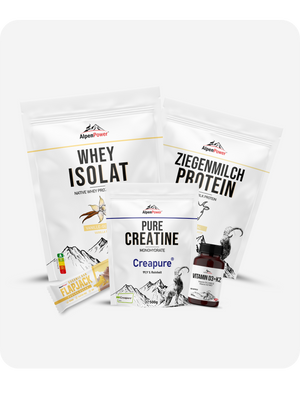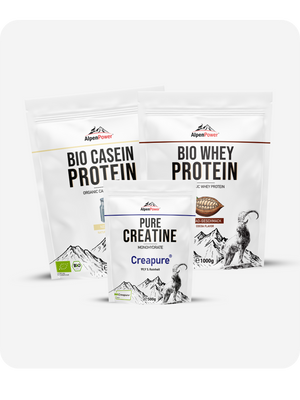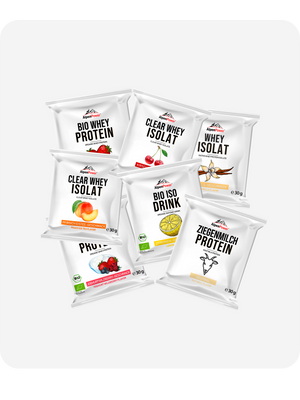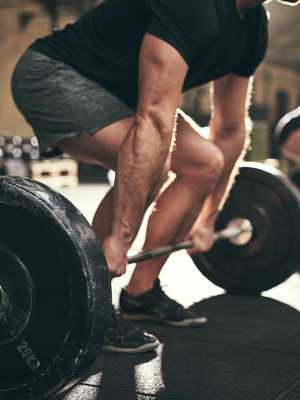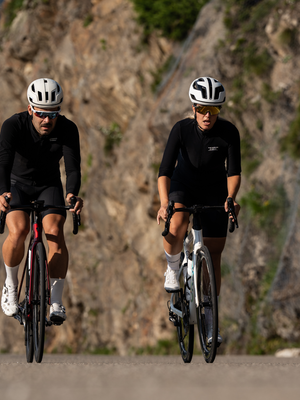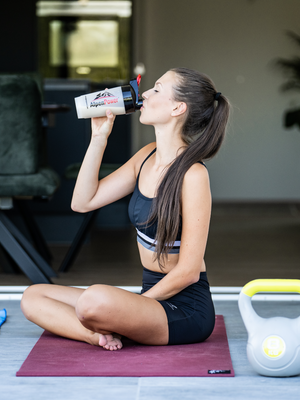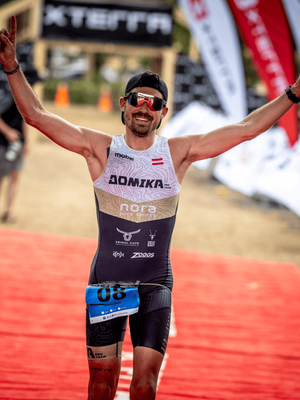In autumn, with cooler temperatures, more frequent training initiatives (e.g. for winter sports) or more intensive muscle and outdoor exercise, the regeneration of muscles and nerves becomes increasingly important. Neuromuscular regeneration involves the restoration of muscle and nerve function after stress, microtrauma or (in competitive sports) high-intensity training. The decisive factors here are Muscle and nerve metabolism, blood circulation, electrolyte and mineral balance, as well as sleep and regenerative processes.
In addition, the interaction of muscle, nerve and sleep quality is an integrative system: a good supply of micronutrients supports muscle contraction, nerve conduction, myelinated fibres and synaptic reactions as well as good sleep quality and thus indirectly regeneration.

Study situation
Micronutrients for muscle function & nerve signaling
- A large study showed that in older people, lower serum magnesium levels were significantly associated with lower muscle strength and performance (e.g. grip strength, knee extension), even after adjusting for age, activities, BMI, etc.
- In a recent review, magnesium was highlighted as a key element for skeletal muscle function, myogenesis (muscle formation), contraction and performance.
- It has been shown that an adequate supply of nutrients (e.g. vitamins, minerals) is essential for peripheral nerve regeneration - a review emphasizes "dietary nutrients in peripheral nerve regeneration".
- Sleep quality is also linked to micronutrient status: In a study of healthy adults, for example, magnesium or vitamin B12 status was associated with sleep quality.
Connection between muscle-sleep-regeneration
- A narrative review shows that nutrition and sleep interact with each other: Poor sleep leads to increased muscle proteolysis, poor regeneration, and micronutrients have a modulating effect on both processes.
Practical recommendations
Based on this evidence, the following recommendations for neuromuscular regeneration in the fall can be formulated:
- Targeted consideration of magnesium
- Make sure you get enough magnesium (e.g. 300-400 mg/day depending on your needs). Good sources: dark leafy vegetables, nuts, seeds, whole grains.
- In the case of intensive physical exertion, it is worth consciously checking and, if necessary, supplementing for a short time after consulting a specialist.
- Magnesium supports muscle contraction/relaxation, energy metabolism and nerve function - making it a key building block for regeneration.

- Don't neglect B vitamins & other micronutrients
- Vitamin B1, B6 and B12 have been studied together in peripheral neuropathy: a combined preparation led to an improvement in reflexes and muscle strength after 90 days.
- Zinc, iron, vitamin D and vitamin C may also play a role in sleep quality and neuromuscular health. For example, a systematic analysis showed that sleep duration was positively associated with iron, zinc and magnesium.
- Recommendation: A balanced diet with high-quality proteins, vegetables, whole grains, nuts/seeds provides many of these micronutrients.

- Optimize sleep quality
- Make sure that sleep is provided both in terms of duration (e.g. 7-9 hours depending on the person) and quality (continuous sleep, good deep sleep percentage).
- Lack of sleep or disturbed sleep impairs muscle regeneration and nerve function (e.g. increased muscle breakdown markers, poorer neuromuscular performance).
-
Nutrition can support sleep, especially by providing sufficient minerals and vitamins.
- Consciously plan for regeneration
- After intensive training sessions (e.g. winter sports preparation, mountaineering, trail running), a targeted phase of active recovery should take place (e.g. light running, stretching, walking, sauna).

- This phase is supported by nutritional and micronutrient support: e.g. easily digestible protein, good mineral intake, sufficient fluids.
- Also: The transition to the colder season may require a little more attention with regard to vitamin D, iron and possibly omega-3; these factors can secondarily promote regeneration.
- Promote movement/nerve stimulation and muscle function
- Micro-movement, active mobilization and targeted strength and coordination training support neuromuscular health. Combined with good nutrition and sleep, this creates a synergistic effect.
- Especially for outdoor activities in fall/winter: Make sure you warm up sufficiently, do targeted exercise, but also rest periods to avoid overloading your muscles and nervous system.
Conclusion
For neuromuscular regeneration in the fall, micronutrients are not a "nice to have" but an integral part of a modern regeneration concept. Magnesium, B vitamins, zinc, iron etc. play a role in muscle function and nerve conduction - at the same time, good quality sleep is essential. Taken together, nutrition, exercise and rest provide a regenerative basis, which is particularly important in the cooler months of the year and during peak periods of stress.
Author: Laura Bahmann
Sources:
- https://pubmed.ncbi.nlm.nih.gov/16895893/
- https://pubmed.ncbi.nlm.nih.gov/39077819/
- https://pmc.ncbi.nlm.nih.gov/articles/PMC8303934/
- https://pubmed.ncbi.nlm.nih.gov/33070286/
- https://pubmed.ncbi.nlm.nih.gov/30979048/
- https://www.walshmedicalmedia.com/open-access/the-improvement-of-ankle-reflex-knee-reflex-muscle-strength-and-sensory-perception-after-fixed-dose-combination-of-vitamin-b1-b6-a-123321.html
- https://pubmed.ncbi.nlm.nih.gov/27702409/
- https://arxiv.org/abs/2312.05033
